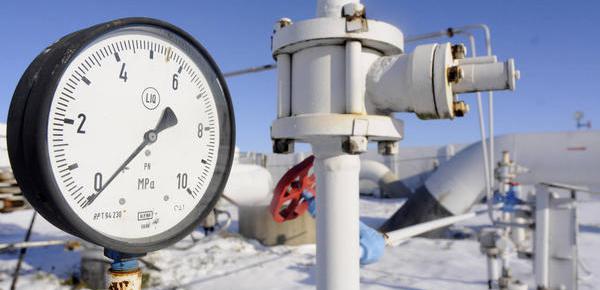Greece may face a difficult remaining winter season in terms of natural gas sufficiency if temperatures drop in the wider region as a result of Russia’s bilateral tensions with Turkey and Ukraine, both crucial supply routes.
In recent years, Botas, the Turkish state-run crude oil and gas company, has both severely limited and turned off the tap for gas supply to Kipous, northeastern Greece, when temperatures plunge so as to ensure the neighboring country’s domestic needs. These periods usually last a few days and Russia, until now, has typically stepped in with greater supply towards Turkey, helping normalize supply conditions in the region.
However, such back up from Russia is considered impossible at present considering the poor bilateral ties between Moscow and Ankara. Consequently, it remains unknown for how long Botas will stop supplying Greece if temperatures plunge to considerably boost natural gas consumption needs in the region.
Botas and DEPA, the Public Gas Corporation, have signed an agreement stating that non-delivery of contracted quantities may activate penalty-related clauses. If Turkey fails to comply, it will need to specify the reasons.
The situation could worsen for Greece if a halt from the Turkish-linked Kipous supply point coincides with the closure of taps at the northern entrance, in Bulgaria, the main supplier of Russian natural gas to Greece. Such a development cannot be ruled out if tensions between Russian and Ukraine, which affect Russian Gazprom’s supply to Ukraine’s Naftogaz, are not appeased.
Russia appears determined to not continue supplying natural gas to Ukraine if Kiev does not provide substantial deposit amounts, judging by public comments made by Russian officials. Ukraine’s alternative, to absorb natural gas from its western European neighbors, is not an unlimited option as these countries will not possess excess amounts to export if weather conditions worsen and their own needs increase.
The pipeline that carries Russian natural gas to the south for supply to the wider region, including Greece, and passes through Ukraine is different to the one facilitating Russian supply to Ukraine. If Russia closes the tap on Ukraine, as it has done in the past, then Ukraine, if faced by gas shortages of its own, will surely draw from the transit pipeline intended for the southern countries.
Local authorities, in comments offered to energypress, have confirmed that a combined supply problem from the east and north may threaten sufficiency levels in Greece. This would pose a threat to electricity generation as substantial local power amounts are produced at gas-fueled stations.
However, the crisis would need to persist for a prolonged period if it is to cause gas supply problems in Greece. The country’s LNG terminal in Revythoussa, an islet in the Saronic Gulf, close to Athens, is equipped to store increased amounts, which would offer crucial support.





